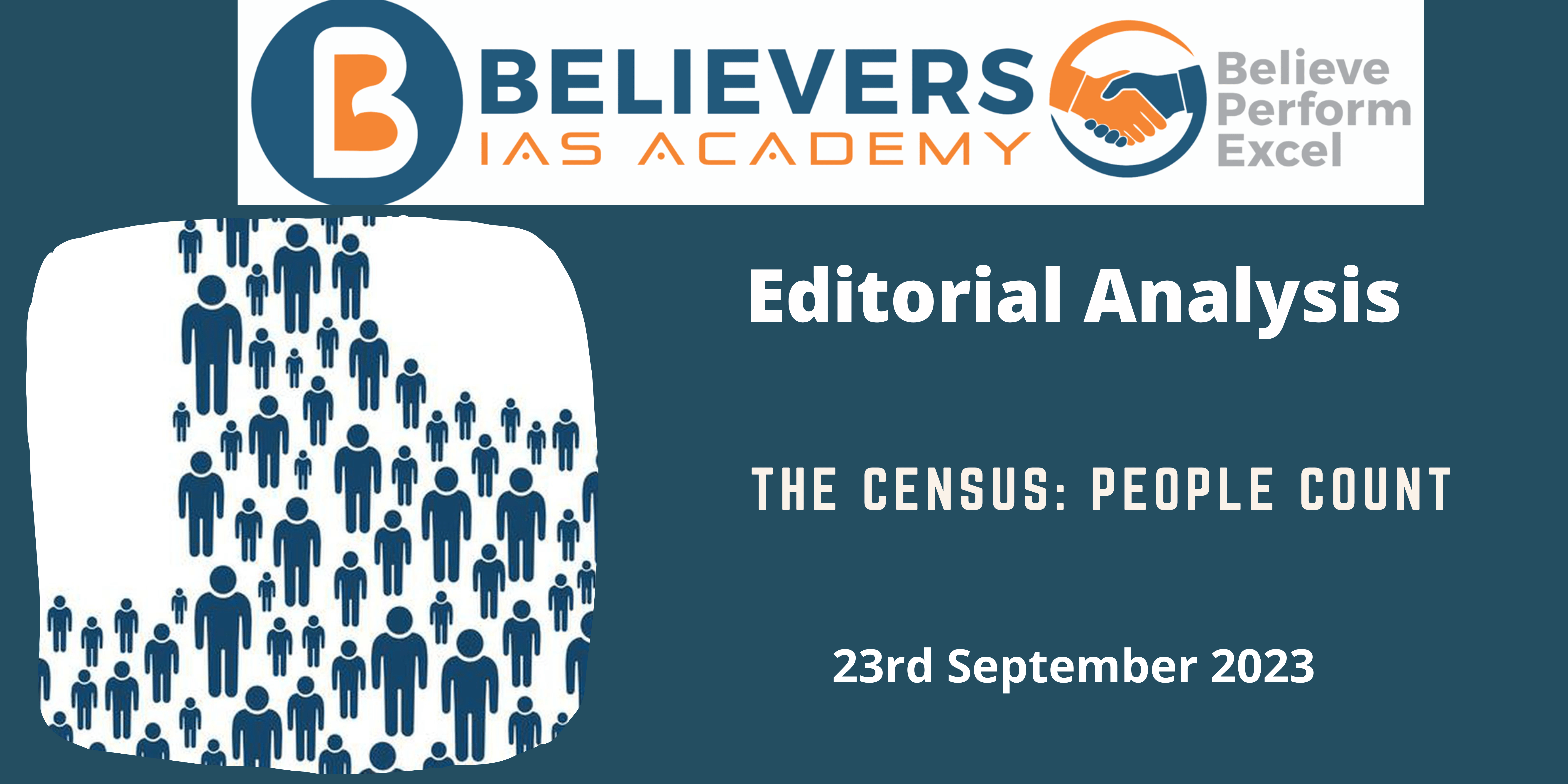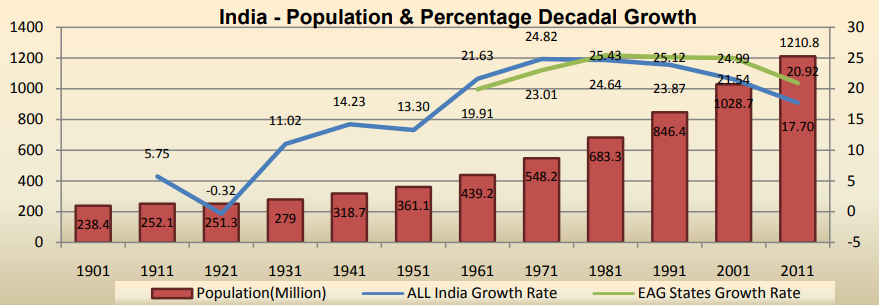The Census: People count
Context:
The Census is more than just a headcount; it’s the foundation for planning and development. India has conducted this critical population assessment every decade since 1881. However, the 2020 Census, meant for 2021, was delayed due to the COVID-19 pandemic. Although the pandemic’s restrictions have lifted, the BJP government at the Centre has yet to provide political clearance for the Census, causing concerns about political motives. Home Minister Amit Shah, recently, stated that the Census would happen after the 2024 general election but left the specific date or year uncertain, leading to speculation. This delay may be linked to the contentious issue of caste enumeration, which the BJP is seeking to avoid. Furthermore, the 2026 Census will lay the groundwork for the next delimitation of Lok Sabha seats, potentially providing incentives for the BJP to postpone it further. Recent changes to the Citizenship Act and disputes between some states and the Centre over the National Population Register (NPR) have further complicated the Census discussions.
Relevance:
GS-02, GS-01 (Population and Associated Issues, Government Policies & Interventions)
Mains Question:
- Examine the significance of the Census in India and the potential consequences of delaying it for political reasons. (150 words)
Dimensions of the Article:
- Caste Enumeration and Political Implications
- Digital Transformation and Self-Enumeration
- Technological Advancements and Data Integration
- Ensuring Transparency and Collaboration
Caste Enumeration and Political Implications:
- One potential reason for the Centre’s eagerness to delay the Census until 2024 is the contentious issue of caste enumeration. The BJP government may be seeking to evade this issue, which could have significant political consequences.
- A Census after 2026 will serve as the basis for the next delimitation of Lok Sabha seats, involving the redistribution of representation among states.
Digital Transformation and Self-Enumeration:
- The upcoming Census is set to be the first digital census, allowing citizens to “self-enumerate.” During self-enumeration, individuals will be required to provide their Aadhaar or mobile number.
- Approximately 30 lakh government officials and schoolteachers will serve as enumerators, responsible for collecting data from an estimated population of over 140 crore.
- The process approximately takes least as 11 months, but advancements in technology are changing the quality and mechanism of population data collection.
Technological Advancements and Data Integration:
- The advancements in the technological areas have enabled centralized population register that integrates data from various sources like Aadhaar, ration cards, passports, and driving licenses.
- The Registration of Births and Deaths (Amendment) Act, 2023, will give real-time updates to the centrally stored data, eliminating the need for human interface which will streamline processes such as adding individuals to the electoral roll when they turn 18 and also removing them after their death.
Way Forward: Ensuring Transparency and Collaboration
- The government should foster collaboration with states and political parties to address the various issues surrounding the Census.
- Open dialogue alongside being transparent is very much essential to ensure that this critical exercise serves its intended purpose without unnecessary delays or controversy.





